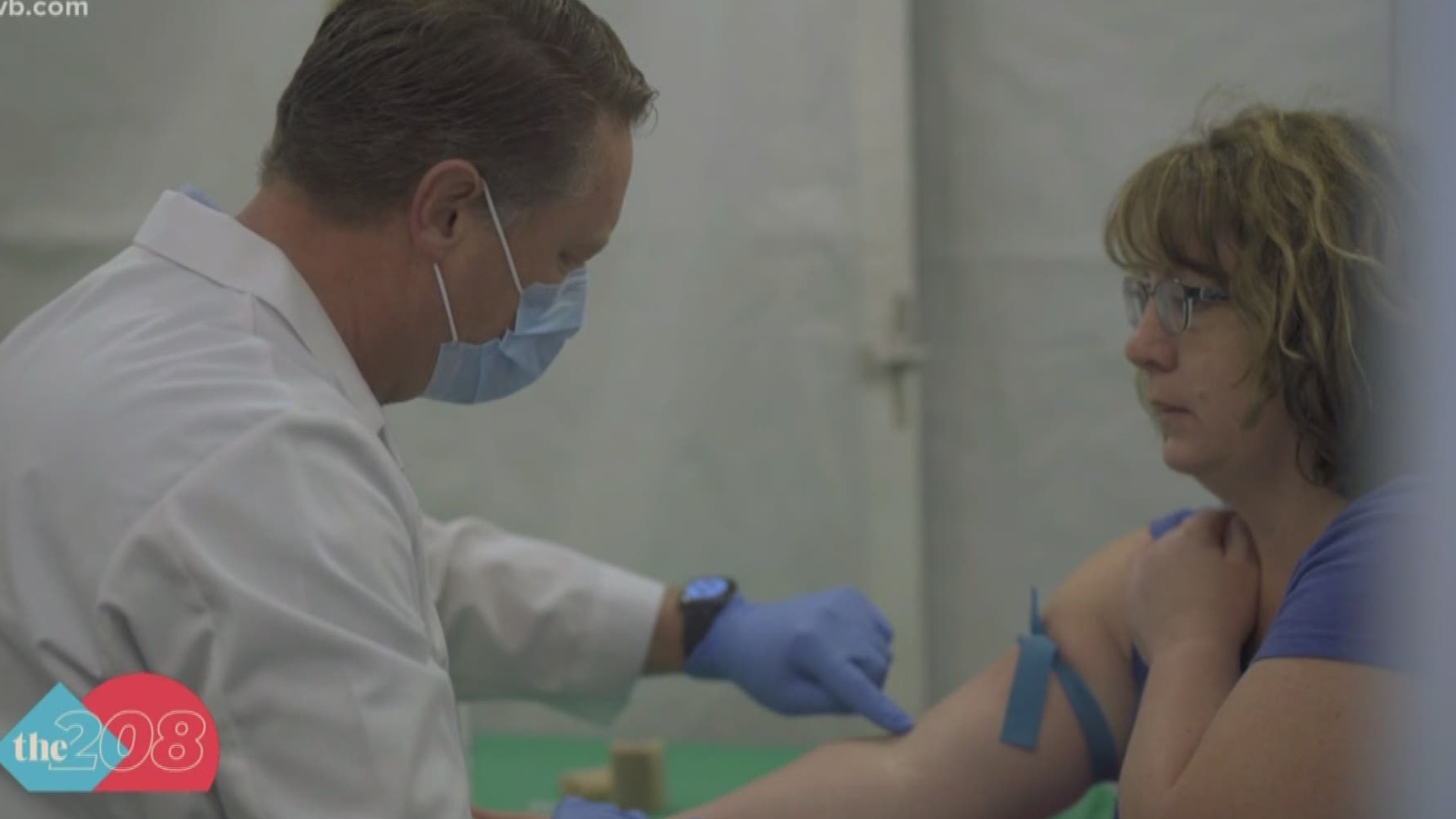BOISE, Idaho — Last week, Crush the Curve Idaho announced that, in addition to offering COVID-19 testing to anyone who wants it, the nonprofit would also offer antibody testing to anyone who wants to pay for it.
Antibody tests determine if you’ve ever had coronavirus and as a result, now have the antibodies to fight future infections.
At about the same time as the Crush the Curve announcement, Dr. David Pate, a member of Idaho's coronavirus working group, took to Twitter to warn Idahoans that a positive antibody test is likely false. Crush the Curve spokesman Dr. Tommy Ahlquist responded, questioning whether Pate’s comments were “genuine,” and sparking a back-and-forth between the two physicians.
So we reached out to Drs. Pate and Ahlquist to ask about antibody testing - and why we should (or shouldn't) be putting stock in it.
According to Ahlquist, the test is highly accurate in determining if a person has antibodies for COVID-19.
"So this is on a full machine where we're actually drawing people's blood, spinning it down, sending the plasma through the machine and it will tell you with 100% accuracy on sensitivity and 99.6% on specificity whether or not you have antibodies for COVID-19,” Ahlquist said. “So the people getting tested today, we will be able to tell them with those two numbers, 100% and 99.6%, do you have the antibody COVID-19."
The sensitivity percentage mentioned by Ahlquist is the confidence that the test will pick up even small traces of the virus. Specificity is the confidence that it can rule out the presence of COVID-19 antibodies.
Some, like Dr. Pate, are worried the test could create a false sense of security, particularly when it comes to future immunity to COVID-19.
“I think that's helpful to know but that doesn't answer the fundamental question, and that question is, if you have a positive antibody test, first of all, what's the chance it's truly positive?” Pate said. "And then the second question is if it really is positive, are you immune? And nobody knows the answer to that question."
Idaho COVID-19 latest: Latest news | Map of confirmed Idaho cases | Stay-at-home order details | COVID-19 resources | Testing sites | Employers hiring | Essential business list | Closings | School closings | Help nonprofits| Golf info | Full COVID-19 coverage
Ahlquist insists he is not advocating that a positive COVID-19 antibody test means that person is now immune to the virus.
"We’re not telling people that this is some stamp of approval, you can go back to your life the way it was. That is not the messaging,” he said. "You still have to be careful. We're still going to have to walk through this together. This is going to be something that is going to evolve."
When asked why he thinks antibody testing is so important in the next phase in fighting coronavirus, Ahlquist pointed out there may be a large number of people who had the virus but didn’t know it.
"So think about the tools we have in a toolbox to fight it - one of those tools is, do you have [the virus] right now?” he said. “But the second part is have you had the test in the last several weeks? The other thing about knowing whether you've had a test or not is... some of the studies coming out are showing that up to 50 or 60 percent of people are completely asymptomatic. Well, that matters."
That’s important, Ahlquist said, when it comes to getting people back to work.
But Pate says, without fully knowing the benefits of having antibodies, a positive test could do more harm than good.
"I'm not suggesting to anybody that we wait for a perfect test,” he said. “What I’m saying is if you want to stop taking precautions, or if your employer is thinking that we can treat you differently because you have a positive antibody test, and not give you the same protection as somebody else, we do need to wait a long time to make sure that we’ve got good data before we put those people at risk.”
Ahlquist argues that the tests can be trusted.
“I'm saying there will never be a better test than this, ever," he said. "This is with the University of Washington virology department. So the argument [critics] said to start antibody testing is to wait till there's a better test - we're there. This is the best test we will have or ever will have. So the question I ask back is when do you want to start testing for antibodies?"
Pate told KTVB the state is not currently using antibody test results to determine the next steps, but they will soon be starting a new testing task force that will explore just that.
There remain some questions about the validity of some antibody tests after the FDA relaxed the rules in an effort to get more tests on the market. Ahlquist insists the tests used by Crush the Curve are legit – they are the same ones used by the University of Washington virology lab.
RELATED: Crush the Curve Idaho secures thousands of COVID-19 and coronavirus antibody tests for Idahoans
Facts not fear: More on coronavirus
See our latest updates in our YouTube playlist:

